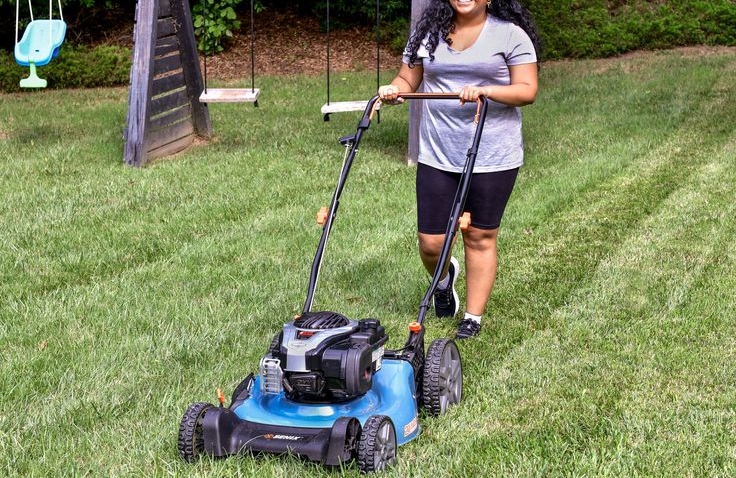
How Long Does a Lawnmower Last: Maintenance Secrets
Understanding Lawnmower Lifespan
Factors Influencing Lawnmower Durability
How long does a lawnmower last? The lifespan of a lawnmower is influenced by several factors. Firstly, the type of mower plays a critical role; manual push mowers, riding mowers, and automated mowers each have different durability profiles. Moreover, the frequency of use largely dictates how quickly a mower’s components may wear out. Frequent and intense usage can accelerate wear and tear. Another important factor is the quality of maintenance. Regular cleaning, proper storage, and timely repairs can significantly extend a lawnmower’s life, preventing early malfunctions. Additionally, operating the mower in appropriate conditions also matters, as rough, uneven terrains can be harsh on the machinery.

Average Lifespan of Push vs Riding Mowers
There is a noticeable difference in the average lifespan between push mowers and riding mowers. Push mowers, which are often less mechanically complex, can last up to 10 years or more with proper care. In contrast, riding mowers, typically used for larger and more demanding lawn areas, usually have a lifespan ranging from 5 to 8 years. This disparity is mainly due to the increased mechanical complexity and the heavier wear and tear experienced by riding mowers.
Engine Hours as a Measure of Lawnmower Life
Engine hours provide a more accurate estimation of a lawnmower’s lifespan than just years. For example, riding mowers can operate effectively for 500 to 1,000 engine hours. More robust models, such as those from high-end brands like John Deere, may last up to 2,000 engine hours. By tracking how many hours the mower runs, owners can anticipate when maintenance or replacements might be necessary. This method helps in managing the mower’s lifecycle more efficiently and ensures optimal performance throughout its use.
Proper Maintenance and Care Techniques
Proper maintenance is key for extending a lawnmower’s lifespan. By following the right care techniques, you can ensure reliable performance and delay costly repairs or replacements.
The Importance of Regular Maintenance
Regular maintenance prevents malfunctions and keeps lawnmowers running smoothly. Cleaning the engine, checking oil levels, and sharpening blades are essential tasks. Conduct these regularly for the best results. Skipping regular care can lead to early wear and reduce the lifespan significantly.
The Role of Fuel Quality and Stabilizers
Using high-quality fuel helps prevent engine deposits and corrosion. Lower ethanol petrol is better for your mower’s engine. Adding fuel stabilisers can also prolong fuel life and protect the engine. It’s best to empty the tank at the season’s end to avoid fuel degradation.
Seasonal Tips for Petrol Lawnmower Care
Prepare your petrol lawnmower for the off-season by following a few simple steps. Drain the fuel, replace the oil, and clean the air filter. Store the lawnmower in a dry place to avoid rust and damage. Proper seasonal care ensures it’s ready for use when spring arrives.
Key Components to Monitor and Replace
Taking care of key components is essential for your lawnmower’s longevity. Monitor and replace these parts to prevent breakdowns and extend your mower’s life.
Benefits of High-Quality Oil and Filters
High-quality oil keeps the engine running smoothly and prevents dirt build-up. Consider changing the oil annually or after every 50 hours of use. Use a dipstick to check oil levels often. Good filters prevent debris from harming the engine. Change the air filter yearly to keep your mower in top shape.

The Significance of Sharpening Mower Blades
Sharp blades mean clean cuts and a healthy lawn. Dull blades tear grass, causing a rough look. Sharpen blades regularly for the best cut. You can do it yourself with care or get a professional service.
Keeping the Undercarriage Clean
Grass and dirt clog the undercarriage, affecting performance. They can also spread lawn diseases. Clean the undercarriage after each mowing session, especially when mowing wet grass. This may involve using a wire brush or damp cloth to remove debris. Some petrol mowers have a washout port for easy cleaning. Avoid using a hose on electric mowers to prevent water damage.
Electric Mowers: Caring for Batteries and Cords
Proper care for electric mowers is crucial for a long-lasting lawn care device. Unlike petrol mowers, these rely on batteries or a continuous power supply. Taking good care of these components is key to the overall longevity of the mower.
Best Practices for Battery Maintenance
Battery maintenance is essential for cordless electric mowers. Always store batteries at the right temperature, away from extreme heat or cold. Charge them fully before storage and at regular intervals in the off-season. This prevents total discharge, which can harm the battery’s ability to recharge. If you have a lithium-ion battery, don’t let it run down to zero. Following these steps helps maintain battery health and performance for years.
Handling Corded Mower Safety
Corded mowers need careful handling as well. Always check the power cord for damage before use. Any signs of wear or tear mean it’s time to replace or fix the cord. Keep the cord clear from mowing paths to avoid accidents. When you’re done, store the cord properly to avoid kinks and damage. Proper handling and storage of the power cord reduce the risks of electrical hazards and ensure your mower is safe to use each time.
Pre-Mowing Checks and Setup
Proper setup and pre-mowing checks can prevent damage to your lawnmower and maintain its condition. Prior to mowing, ensure your mower is ready and your lawn is clear. This helps prolong the lifespan of your mower.
Lawn Inspection and Removal of Debris
Start by inspecting your lawn for debris like sticks or rocks. Remove these objects to prevent blade dulling or mower damage. Clearing the area not only protects your lawnmower but also results in a neater cut. Grass should be dry before mowing to avoid clogging the mower.
Adjusting to Lawn Conditions for Optimal Mowing
Adjust mower settings to suit your lawn’s conditions. For taller grass, raise the cutting height to avoid straining the mower. For uneven terrain, proceed slowly and use caution. The right settings minimize wear and tear, thus extending your lawnmower’s life. Regularly assessing these conditions before mowing ensures a clean cut and reduces potential problems, helping the lawnmower to last longer.
Making the Right Purchase
Choosing the right lawnmower is critical for ensuring longevity and effective lawn maintenance. This section will guide you through making informed purchase decisions based on lawnmower reliability and suitability for your specific lawn needs.

Survey Insights on Lawnmower Reliability
Recent surveys have revealed that not all lawnmowers are built to last. A survey conducted this year showed that more than 10% of lawnmowers fail before reaching seven years of service. This duration often depends on the brand of the lawnmower. Brands known for quality and durability typically see longer lifespans, and it pays to invest in a well-reviewed brand. Before making a purchase, researching brand reliability and reading user reviews can save you from future frustrations and unexpected expenses.
Choosing the Right Mower for Your Lawn Needs
Your lawn’s size and terrain are significant factors when selecting a mower. Larger lawns might require riding mowers, while smaller or medium-sized areas are often well-serviced by push mowers. Consider the landscape of your garden – if your lawn is sloped or has uneven terrain, opt for a mower designed for such conditions. Furthermore, if your lawn includes numerous tight spaces and edges, look for mowers that offer better control and precision. Finally, always check that any mower you consider matches your physical ability and storage capacity. Making an informed choice ensures you get a mower that not only lasts longer but also operates efficiently, making lawn care easier and more enjoyable.





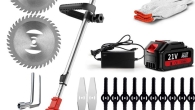

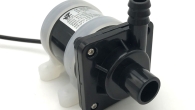


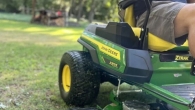
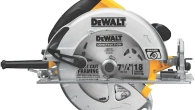
Leave a Reply